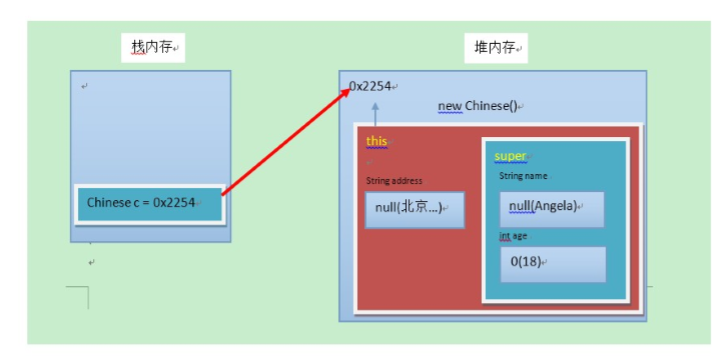在每次创建子类对象时,先初始化父类空间,再创建其子类对象本身。目的在于子类对象中包含了其对应的父类空间,便可以包含其父类的成员,如果父类成员非private修饰,则子类可以随意使用父类成员。代码体现在子类的构造方法调用时,一定先调用父类的构造方法。
super和this的含义
- super :代表父类的存储空间标识(可以理解为父亲的引用)。
- this :代表当前对象的引用(谁调用就代表谁)。
super和this的用法
访问成员
this.成员变量 ‐‐ 本类的super.成员变量 ‐‐ 父类的this.成员方法名() ‐‐ 本类的super.成员方法名() ‐‐ 父类的
public class Animal {
public void eat() {
System.out.println("animal:eat");
}
}
public class Cat extends Animal {
@Override
public void eat() {
System.out.println("cat:eat");
}
public void eatTest() {
this.eat();
super.eat();
}
}
public class Test {
public static void main(String[] args) {
Animal a = new Animal();
a.eat();
Cat c = new Cat();
c.eat();
c.eatTest();
}
}

